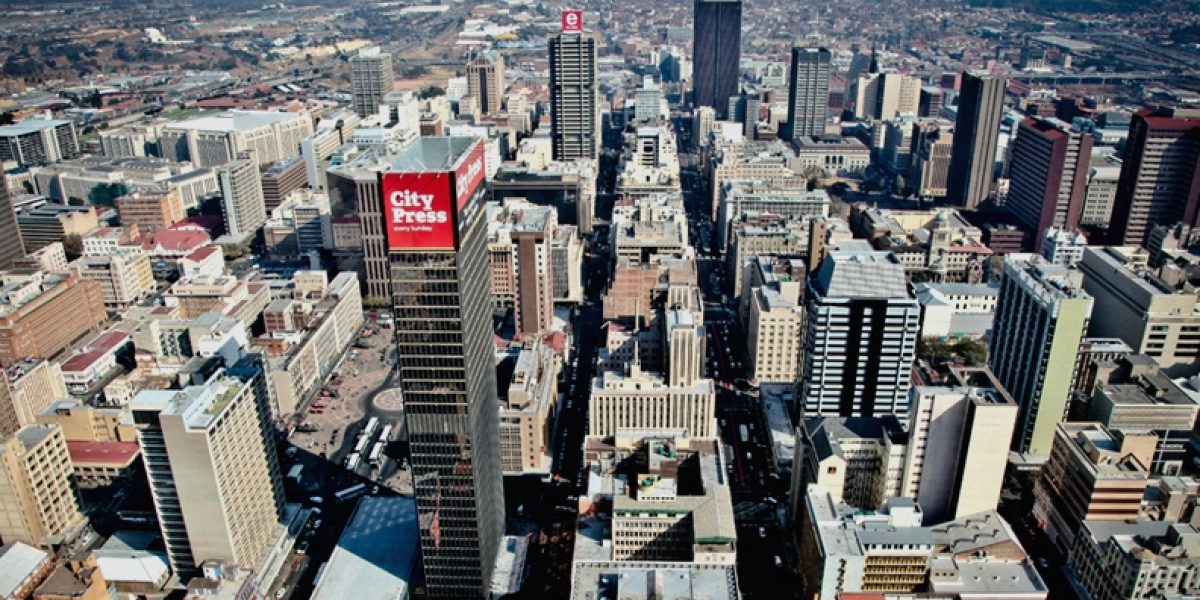Whether this involves appeals to socio-economic transformation, combatting corruption, redistributing land, party brand-loyalty or invoking the images of party leaders – whose names will not appear on ballots on 3 August – an important subtext is that these elections are speaking to something altogether ‘bigger’ than local governance and the management of service provision. Cynics might even consider these polls mere warm-ups as we approach the main tournament of national elections in 2019.
This is unfortunate.
Worldwide, the challenges of contemporary life are increasingly being defined in cities. Cities not only have the responsibility of enabling life for unprecedented numbers of people, they are redefining assumptions about the nature of political life. Functional linkages – of economics, ideas, culture and so on – frequently traverse political borders.
Far from being a side-game of national processes, local politics is ever more the main event. This is particularly profound in Africa. By around 2030, over half of Africa’s population will live in cities and towns. By 2050, three quarters of the population of Southern Africa, and two thirds in Central, Western and Northern Africa will live there. Four of the world’s megacities will be African by 2050 – Cairo, Lagos, Kinshasa and the Gauteng city-region – while 70% of Africa’s growth will be in secondary cities.
Although the rate and scale of growth in South Africa’s major cities will be more modest, largely because its urbanisation trajectory began earlier, the country is contending with the expansion of its secondary cities and its smaller towns. Often located around localised industries or transport hubs, these centres provide important links between large cities and the rural hinterland. But as South Africa has found – the National Development Plan euphemistically characterised their performance as ‘uneven’ – they often lack the infrastructure, the amenities and the managerial expertise to deal with the governance of urban growth.
Nor do Africa’s cities – large or small – offer the opportunities their growing populations crave. Historically, urbanisation has been most inclusive (albeit not without setbacks) when it has happened on the back of rapid economic growth and industrialisation, as in Europe and America in the 19th century, or East Asia in the 20th. Cities provided their most entrepreneurial residents with the environment to invest and innovate; and a place for the streams of newcomers to find work opportunities. Respectable public management converted wealth into tax revenue, and into high-quality public services.
Africa’s urbanisation has not been associated with this virtuous cycle. Urbanisation is often driven by the hope of finding something better than what a rural life can provide. Africa’s urbanising population is drawn to visions, not existing realities. South Africa’s cities are no exception. Slow economic growth and increasing populations retard movement away from informality in much of the urban landscape and emphasise deepening inequalities.
Africa’s cities can and must turn this around. A fundamental first step is to recognise the importance of municipal governance. Sensitive to local conditions, it is this sphere of government that is best placed to steer cities into the future. Its specific weaknesses aside, South Africa is a pathbreaker, with constitutional recognition and a sophisticated institutional design for its municipalities. Crucially, it also accords them revenue-raising powers. This is not the case elsewhere on the continent.
Angola, for example does not have municipal governments, merely administrative divisions of the national government. Despite the recognition of the potential benefits of decentralisation, many African countries have been averse to it. Strong local governments challenge the control of central governments and add complexity to the management of countries’ finances. As a consequence, strong local institutions and locally-sensitive planning struggle to emerge.
Then there is the raw political dimension. When the Kampala municipality fell to the opposition, the Ugandan government simply introduced a parallel administration, reducing the city council to virtual impotence.
But even if this policy and institutional space were to be provided, Africa’s cities confront extensive deficits in their own administrative and resource capacities. Even where properly-constituted municipalities exist, they are often reliant on fiscal transfers from national treasuries. They must undertake the hard process of constructing the administrative systems and development capacities, mobilising resources and rolling out the well-designed infrastructure – without which the continent’s aspirations in the modern world will be stillborn.
Those aspirations are reflected in the intriguing possibilities offered by modern technology, in fields as diverse as utilities management, to land registration, to electrification and sanitation. But each demands careful consideration that must be provided by accountable leadership and a competent administration.
Cities will be the battlegrounds where the 21st century’s twin challenges of inequality and social disconnection will be fought. South Africa’s mayors and other stakeholders are realising that cities are the key developmental hubs and that how they tackle infrastructure, health and the environment at city level is what matters. That’s why city mayors were included at the Paris climate change meeting in November last year – because any global commitments will require cities to play their part. These rapidly altering realities demand that Africans – elites and ordinary citizens – give due attention to the governance of their municipalities. The upcoming municipal elections in South Africa are thus no sideshow. With our more mature cities and stagnant economic growth, effective, accountable and visionary governance of our urban centres is a goal that we can ill afford to miss.








